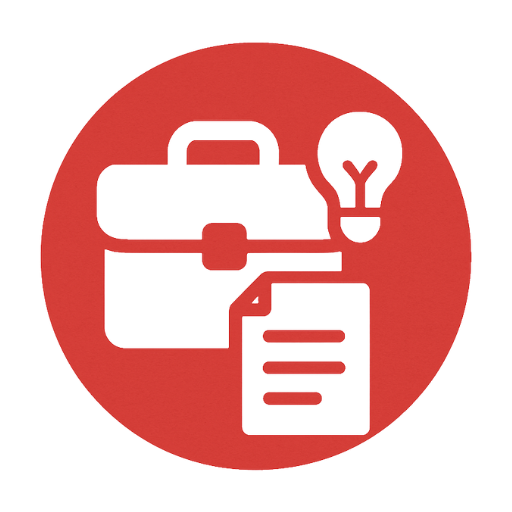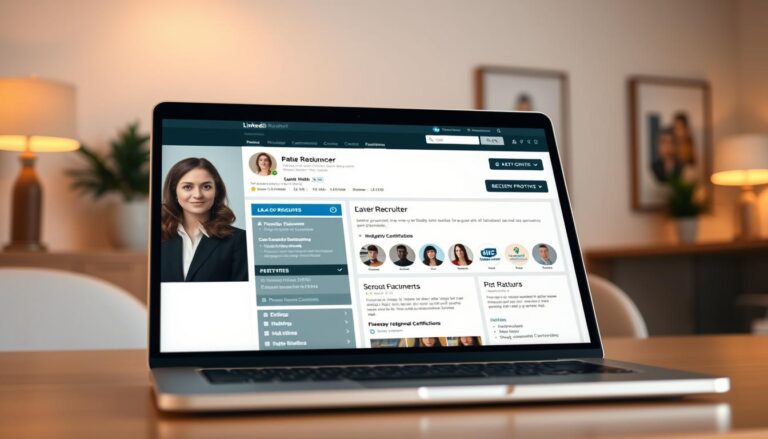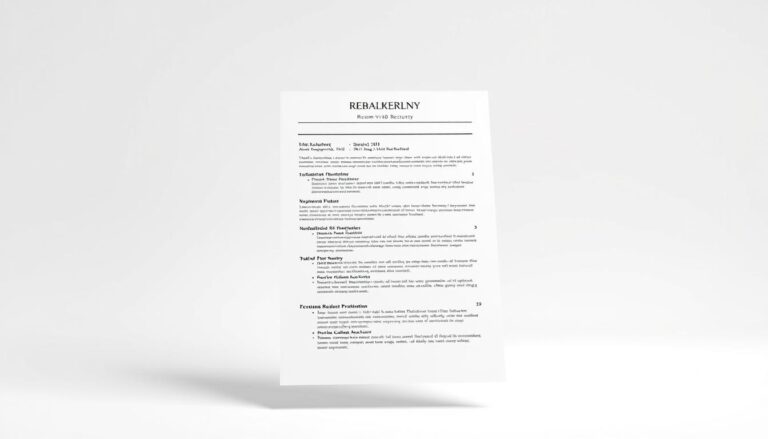Questions You Should Always Ask at the End of an Interview

When an interviewer asks, “So, do you have any questions for me?” it’s more than just a courtesy. It’s a chance to shine. Having smart interview questions ready shows you’re ready, eager, and really interested in the job.
Asking the right questions can be your last chance to show off your skills and passion for the role. It’s a moment to take charge and steer the conversation.
This way, you get important details about the job and make a strong impression on the interviewer. It could be what makes your application memorable.
Why Asking Questions at the End of an Interview Matters
The final moments of an interview are just as important as the start. Asking questions can make a big impression. It shows you’re interested and enthusiastic about the role and company.
It’s your last chance to show off your skills and experience. You can prove you’re engaged and motivated. Thoughtful questions can also give you insights into the company culture and what’s expected of you.
Asking questions also shows you’re prepared and curious. Employers value these traits. It turns the interview into a conversation, helping find a good match for both sides.
In short, asking questions at the end is more than just getting info. It’s about showing your strategic thinking and career planning skills. It’s a key part of the interview process.
Preparing Your Questions Before the Interview
Before you go to an interview, it’s key to prepare a list of questions. This shows you’re interested and curious about the job. It’s a big part of interview preparation, showing you’re eager to learn more.
It’s smart to have several questions ready. Some might be covered early on. Aim for at least four or five questions. This way, you’re prepared for any turn the conversation might take.
Make your questions fit the job and company. Learn about the company’s mission, values, and recent wins. This shows you’ve done your homework and care about the company’s future.
Good preparing for an interview is more than just answering questions. It’s about having a real conversation. By preparing your questions, you can focus on what you bring to the table. This makes your job search more effective.
Questions About the Role and Responsibilities
Asking the right questions about the role can give you valuable insights. It’s important to know the job details to see if it fits your career goals. This helps you understand if the role matches your expectations.
Key Responsibilities and Daily Tasks
Learning about the job’s daily tasks is key. Questions like “What does a typical day look like?” or “Can you describe the key responsibilities?” are helpful. They help you see if your skills and experience fit the job.

Also, asking about the role’s challenges can give you insight. For example, “What are the most significant challenges?” shows you’re serious about understanding the role. This shows your interest and helps in role clarification, making sure you know what’s expected.
By asking the right questions, you learn how the role helps the team and fits into the organization. This supports your career development.
Questions About the Team and Management Style
Asking the right questions about the team and management can reveal a lot about the company culture. When you’re considering a new job, it’s key to understand the team dynamics and management style.
One important question is, “Can you tell me about the team I would be working with?” This can give you insights into the team’s composition, experience levels, and how they work together. Also, asking about the management style can help you see how your supervisor will support you.
Questions like “What is the typical communication style within the team?” or “How does the management encourage professional development?” are helpful. Knowing the team dynamics can help you see if you’ll fit in and contribute well.
Also, asking about the challenges the team faces and how they’re solved can give a realistic view of the work environment. It’s good to ask about team-building activities or social events that help build a positive company culture.
By asking the right questions, you can learn more about the team’s strengths and weaknesses, and the management style that drives the team. This info is crucial for making a smart choice about your potential new role.
Questions You Should Always Ask at the End of an Interview About Company Culture
Asking about the company culture is key during an interview. It helps you understand the work environment and how people interact. This insight is crucial for fitting in well.
Right questions about culture can show if the company matches your values. For example, “Can you describe the company culture?” or “What are the company’s core values?” These questions help you see if you’d be a good fit.
It’s also important to ask about the work environment. Questions like “How does the company support employee well-being?” or “What initiatives are in place to promote a healthy work-life balance?” show the company’s focus on employee happiness.
Understanding how the company values employee happiness is telling. Asking “How does the company measure employee satisfaction?” or “What programs are in place to ensure employee engagement?” reveals if the company cares about its employees’ happiness.
By asking these questions, you learn more about the company culture. You also show you care about being part of a positive work environment. This can impress the interviewer, showing you’re thoughtful and considerate.
Questions About Growth and Development Opportunities
Looking into career growth and development is key to finding the right company. Asking about growth opportunities in an interview can reveal a lot about your future there.
To learn about professional growth, you might ask, “What’s the typical career path for someone in this role?” or “Are there chances for professional development?” These questions help you see if the company values employee growth.
Other good questions include: “What training programs are there for employees?” or “How does the company support ongoing education?” Asking these shows you’re eager to grow with the company. It also gives you a better idea of what’s ahead.
By asking about growth opportunities, you learn about the company’s culture. You also show your eagerness to contribute and grow with the organization. This can make a good impression on the interviewer.
How to Frame Your Questions Effectively
The way you ask questions can greatly affect the quality of answers you get in an interview.
Effective questioning is more than just asking questions. It’s about asking the right ones in the right way. To do this, create open-ended questions that spark discussion and offer deep insights.
Steer clear of yes or no questions, as they restrict the depth of answers. Use questions starting with what, how, or why to get more detailed responses. For instance, “What are the biggest challenges facing the team right now?” is better than “Is the team facing any challenges?”
Effective question framing helps you understand the role, team, and company culture better. This not only aids in making a well-informed decision but also shows your interest and engagement to the interviewer.
To become skilled at framing questions, practice by preparing a list of open-ended questions about the job and company. This preparation boosts your confidence and ensures you get the most from the interview.
Questions About the Hiring Process and Timeline
Understanding the hiring process and timeline is key after an interview. It helps you plan and manage your expectations.
Asking about the next steps in the hiring process can give you valuable insights. You can ask questions like “What are the next steps in the hiring process?” or “When can I expect to hear back from you?”
Also, asking about the typical timeline for the hiring process can help. It gives you a clearer idea of what to expect. This keeps you informed and ready for the next steps.
By asking about the hiring process and timeline, you show you’re interested in the job. It also shows you’re willing to follow up. This can make a good impression on the interviewer.
Questions to Avoid Asking in Interviews
Asking questions in an interview is key. It shows you’re interested and curious. But, the questions you ask can change how the interviewer sees you.
Don’t ask about salary or benefits too soon. Money matters, but asking about it too early can seem like you’re only in it for the cash. Ask questions that show you’re really interested in the job and the company.
Examples of questions to avoid include:– “How much does the job pay?” or “What are the benefits?” at the initial stages.
– Questions that can be easily answered by doing research on the company’s website, such as “What does your company do?” or “How long has the company been around?”

Also, avoid asking negative or confrontational questions. They can make a bad impression. For example, “Why did the last person leave the position?” might seem negative. But “What are the biggest challenges facing the team right now?” is more positive.
Think carefully about your questions. They can help you make a good impression and show you’re a good fit for the job. The goal is to show your interest in the position and the company, not just to get information.
Conclusion: Making Your Final Questions Count
Asking the right questions at the end of an interview can make a big difference. It shows you’re interested in the job and the company. It also highlights your skills and experience.
Choosing the right questions is key. It’s your chance to leave a good impression on the interviewer. So, pick questions that are thoughtful and relevant.
Follow the tips from this article to make your questions stand out. Aim to show your excitement for the role and the company. Also, get important information to help you decide.
By focusing on your final questions, you can greatly improve your chances of getting the job. It’s a crucial step towards success.






